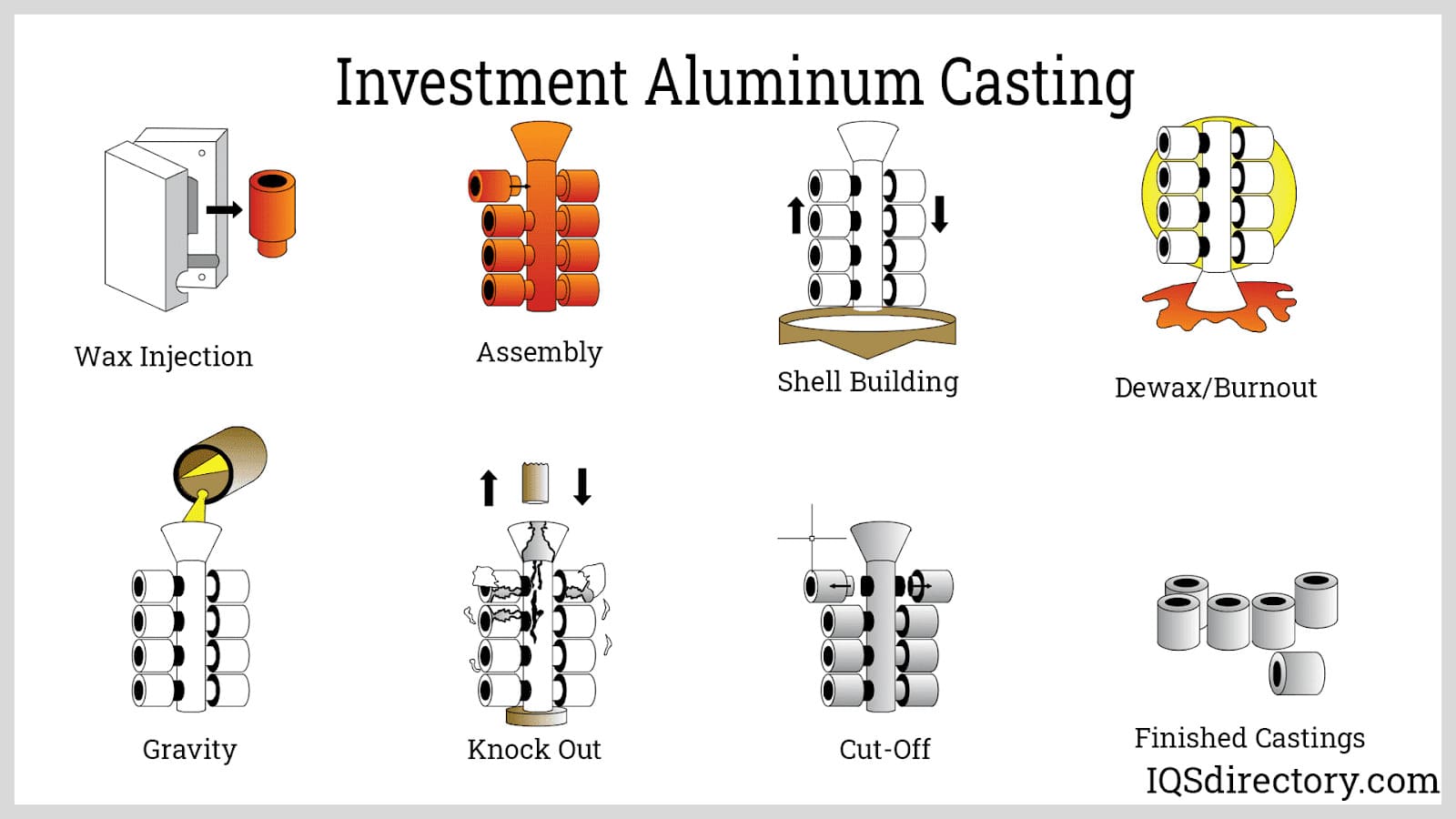Our Alcast Company Diaries
Table of ContentsThe 4-Minute Rule for Alcast CompanyTop Guidelines Of Alcast CompanyThe Definitive Guide to Alcast CompanyFacts About Alcast Company RevealedThe Alcast Company StatementsThe 3-Minute Rule for Alcast Company
Chemical Comparison of Cast Aluminum Alloys Silicon promotes castability by lowering the alloy's melting temperature and improving fluidness during casting. In addition, silicon contributes to the alloy's strength and use resistance, making it beneficial in applications where sturdiness is crucial, such as automotive components and engine parts.It likewise boosts the machinability of the alloy, making it much easier to refine into completed products. In this means, iron adds to the overall workability of light weight aluminum alloys.
Manganese adds to the stamina of light weight aluminum alloys and improves workability (Casting Foundry). It is generally utilized in wrought light weight aluminum products like sheets, extrusions, and accounts. The existence of manganese aids in the alloy's formability and resistance to breaking during fabrication procedures. Magnesium is a light-weight element that gives toughness and impact resistance to aluminum alloys.
More About Alcast Company
It allows the production of light-weight parts with exceptional mechanical properties. Zinc enhances the castability of light weight aluminum alloys and helps regulate the solidification procedure throughout spreading. It improves the alloy's toughness and solidity. It is usually found in applications where complex forms and great details are necessary, such as ornamental spreadings and certain automobile parts.

The main thermal conductivity, tensile toughness, yield strength, and prolongation vary. Amongst the above alloys, A356 has the highest possible thermal conductivity, and A380 and ADC12 have the cheapest.
Unknown Facts About Alcast Company

In accuracy casting, 6063 is appropriate for applications where complex geometries and top quality surface coatings are vital. Instances consist of telecommunication units, where the alloy's exceptional formability permits smooth and cosmetically pleasing designs while maintaining architectural integrity. In the Lighting Solutions sector, precision-cast 6063 components create stylish and efficient lights components that call for intricate shapes and great thermal efficiency.
The A360 exhibits exceptional elongation, making it perfect for complicated and thin-walled elements. In precision casting applications, A360 is well-suited for industries such as Consumer Electronic Devices, Telecommunication, and Power Tools.
Top Guidelines Of Alcast Company
Its special residential or commercial properties make A360 a beneficial choice for accuracy casting in these sectors, enhancing product longevity and high quality. Light weight aluminum alloy 380, or A380, is a widely utilized spreading alloy with a number of distinct characteristics. It provides excellent castability, making it a suitable selection for precision casting. A380 shows excellent fluidity when molten, making sure detailed and comprehensive mold and mildews are precisely replicated.
In accuracy spreading, light weight aluminum 413 shines in the Customer Electronics and Power Equipment markets. It's commonly utilized to craft complex parts like smart device real estates, video camera bodies, and power device coverings. Its accuracy is exceptional, with limited resistances as much as 0.01 mm, making sure perfect product assembly. This alloy's superior corrosion resistance makes it a superb option for outside applications, making sure resilient, resilient products in the mentioned sectors.
The Best Guide To Alcast Company
The aluminum alloy you select will significantly influence both the spreading procedure and the buildings of the final product. Because of this, you need to make your choice carefully and take an informed strategy.
Figuring out the most suitable light weight aluminum alloy for your application will imply evaluating a large range of features. These relative alloy features comply with the North American Die Casting Association's guidelines, and we've split them into two categories. The first category addresses alloy qualities that affect the manufacturing process. The 2nd covers characteristics affecting the residential or commercial properties of the final product.
The Greatest Guide To Alcast Company
The alloy you choose for die casting directly influences several see here now elements of the spreading procedure, like how very easy the alloy is to deal with and if it is vulnerable to casting flaws. Warm fracturing, likewise referred to as solidification breaking, is a typical die spreading problem for light weight aluminum alloys that can lead to interior or surface-level tears or fractures.
Particular light weight aluminum alloys are much more prone to warm cracking than others, and your choice needs to consider this. It can harm both the actors and the die, so you should look for alloys with high anti-soldering residential or commercial properties.
Deterioration resistance, which is currently a noteworthy quality of aluminum, can vary considerably from alloy to alloy and is a vital particular to consider depending on the environmental problems your product will be subjected to (Foundry). Use resistance is one more property commonly sought in aluminum products and can differentiate some alloys